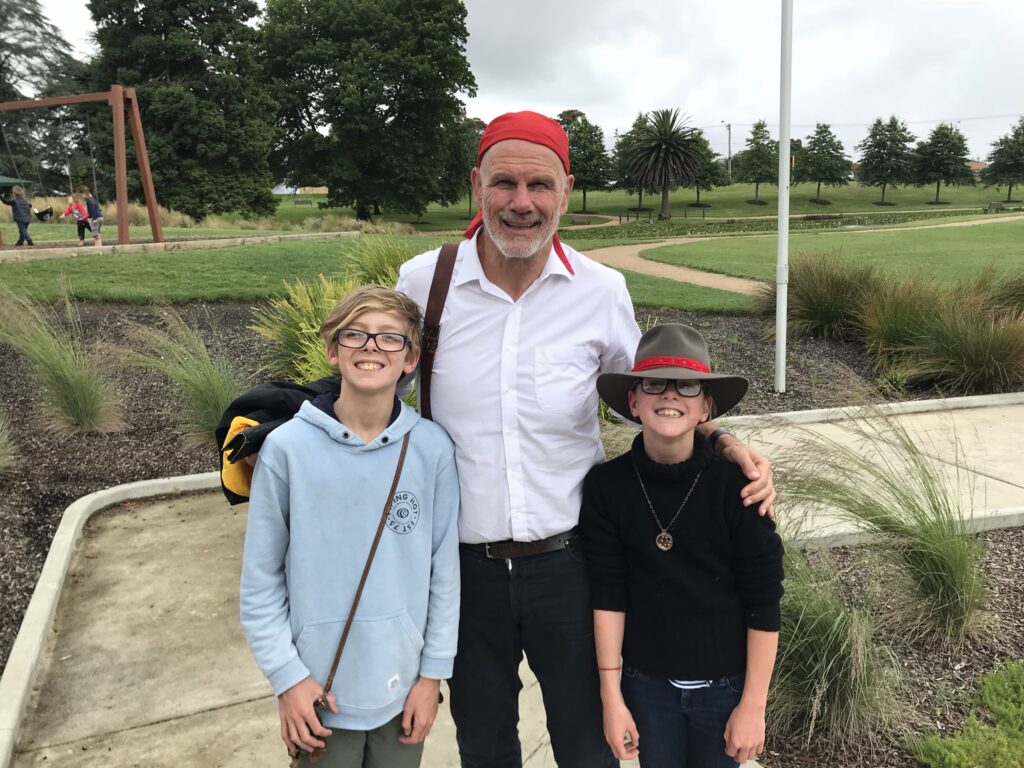So standing in Collins Bookshop in Ballarat, I was faced with the choice of either Batavia or Eureka, the history of the Eureka Stockade rebellion during the 19th-Century Victorian gold rush, which held some interest for me living here in Ballarat where it all happened. In the end though, Batavia’s promise of a bloody tale of historical tragedy, murder, treachery, mutiny and drama on the high seas, nearly four centuries ago, won me over. And boy was I not let down!
Batavia is the amazing true story of a treasure-laden flagship named Batavia of a fleet owned by the Dutch East Indies Company (Vereenigde Oostindische Compagnie or VOC). The Batavia and its accompanying ships embarked on a nine month journey to Batavia (known today as Jakarta, in Indonesia) in 1628–29, on a mission to trade in the lucrative exotic spices that shaped that era of exploration and ultimately changed the world. Tragedy befalls the ship and its crew before they reach their port of destination, and mayhem quickly ensues amongst a crew of desperate misfits and malcontents. The events unfold during a fascinating historical period, full of seafaring adventurers, pirates, vast empires, colonial brutality, the birth of multinational corporate greed, you name it…
As I followed the Batavia’s journey from Amsterdam to the Indian Ocean I was equally appalled and enthralled by the characters that FitzSimons portrays very skilfully, remaining as historically accurate as possible whilst allowing himself the requisite artistic license to bring the characters to life after 400 years. One must remember these people — protagonists, antagonists, major and minor characters alike — really existed. The epoch itself was one of brutal and harsh reality, a world of strict social structures where disobedience could result in death. Where forgetting one’s station and rank was unthinkable and seriously punished. This makes the reckless actions taken by the crew that much more incredulous, but it happened!
Without spoiling the story for those like me who until reading this book had never heard it before, it’s actually quite difficult to read. The brutality, the disregard not only for human life but all shreds of decency, is stark. In the first chapters I was a bit uneasy about the way FitzSimons sets up the central characters, feeling perhaps he was being unfair to paint historical figures — people who actually existed, who had mothers — as evil incarnate
; by the end of the book I was in total agreement and just staggered at the emotional toll I endured reading about events four centuries ago.
In the preface FitzSimons discusses the struggle of breathing life into a 400-year-old story
and humbly hopes he is up to the task. I couldn’t put it down. I was totally transported back in time and could almost smell the salt air. A wonderfully written and researched book, appropriately embellished for readability’s sake without sacrificing historical accuracy, this is the best work of FitzSimons I’ve ever read.
I also found the details of the fateful island where the tragedy unfurled interesting from a personal point of view, as I have sailed those waters myself and gazed with the same wonder and awe at the forbidding coastline of Western Australia, or as the Dutch of the time called it, het Zuidland, the Southland
. I also have seafaring ancestors from Geraldton, and in fact one of the small little islands that form part of the Abrolhos Islands chain is named Akerstrom Island, and I intend to find out if this island is named for a relation of my great-grandfather, Erik Albun Åkerstrom.

